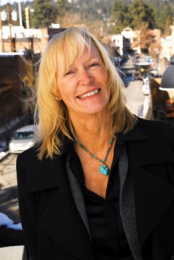 According to a group called Oregonians for a State Bank, Oregon’s economy could benefit from forming a state bank, much like North Dakota’s entity which was established in 1919 to give farmers more control and greater access to capital.
According to a group called Oregonians for a State Bank, Oregon’s economy could benefit from forming a state bank, much like North Dakota’s entity which was established in 1919 to give farmers more control and greater access to capital.
The coalition, composed of small business owners, family farmers, community bankers and their supporters, says that by holding onto its tax money, the Bank of North Dakota makes around $50 million a year in interest, which it can invest directly back into the state.
If the coalition is successful Oregon could be on the fast track to becoming only the second state in the country with a state bank. The Oregon legislature is currently considering House Bill 3452 and Senate Bill 889, which would consolidate and streamline many of the state’s economic development funds. These funds that come from tax dollars would then be used to extend lending to community banks, acting as a bankers’ bank.
As Oregon has lost 148,600 jobs and nearly 100 family farms, Bank of America, which is reported to have made just six small business loans in Oregon in 2010, has reduced the number of its low-interest, Small Business Administration loans by 92 percent, according to the public policy center, called Demos. During the same time Bank of America was decreasing its lending to small businesses the Bank of North Dakota increased its lending by 35 percent.
In contrast, Federal Reserve Chair Ben Bernanke recently praised community banks for stepping in from 2008 to 2010 and increasing small business lending just as Wall Street banks were reducing lending. “In fact, a majority of the smallest banks (in this case, those with assets of $250 million or less) actually increased their small business lending during this period,” compared to Wall Street’s credit freeze on Main Street.”
Demos recently released the study Putting Oregon’s Money to Work for Oregon: Introducing the Virtual State Bank, which estimated that a state bank in Oregon would create an additional 5,391 jobs, $155 million in rainy day revenue and $1.3 billion in new lending to the state’s small businesses, family farmers and community banks.
The proposal would consolidate several public funds and marshal those resources to help create jobs in Oregon by partnering with community banks to extend credit to ‘eligible’ small businesses and family farms. Note that no determination has yet been made as to what entities would actually be eligible and what type of risk would be incurred.
Considering North Dakota’s banking success, it’s easy to see why Oregon and other states are considering state banks. But keep in mind that North Dakota has a population of just 650,000, with significant oil and gas reserves. The state’s success is not due to just having a state run bank. Oregon has a population of 3.8 million.
Many community bankers in Oregon worry that a state-run bank would compete with private enterprise. “The idea that the state would become a behemoth competitor would be very concerning to me as a community banker,” says Cort O’Haver, executive vice president of commercial banking for Umpqua Bank commenting last month to Oregon Business Magazine. Umpqua reports that it actually increased commercial loans by 23 percent in 2010 after a big drop-off in 2009, and recently launched a new business banking division to increase lending further.
After all the easy credit that was occurring before the recession, the question remains as to weather a state-run bank would make loans that aren’t being made now. Would taking on greater levels of risk be in the state’s and/or taxpayers’ best interest?
We’ve already had dismal results from the Small Business Administration’s overly hyped loan programs, resulting in few loans being processed and a bureaucracy second to none. Oregonians should be asking themselves if they want their state government to enter the banking world. If you look at the state’s history of managing and spending our taxes, should they be in a position to invest or lend anything?
To get more information on this effort and how it might impact your business call: Karla Starr, Oregonians for a State Bank, karla@oregoniansforastatebank.org, 503-616-1596
Note: Demos is a non-partisan public policy research and advocacy organization founded in 2000. Headquartered in New York City, Demos works with advocates and policymakers around the country on economic issues. PHA




